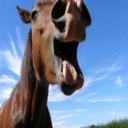Yahoo Answers is shutting down on May 4th, 2021 (Eastern Time) and beginning April 20th, 2021 (Eastern Time) the Yahoo Answers website will be in read-only mode. There will be no changes to other Yahoo properties or services, or your Yahoo account. You can find more information about the Yahoo Answers shutdown and how to download your data on this help page.
Trending News
Best ways of preventing abscesses in horses prone to it?
I’m soon acquiring a horse that has been having chronic hoof abscesses. I’ve dealt with treating them before as they’re so common, but this horse might be more prone to them than normal so I’m wondering if there are ways of preventing them. I know the mud season can bring them on but anything else?
All I know is when the owner got him, his shoes were pulled and he started developing them. He is turned out most of the time but they do have mud issues. My farrier will be trimming him soon so I’m hoping for his input but figured I’d ask for suggestions here.
6 Answers
- zephania666Lv 73 years agoFavorite Answer
In my experience, chronic abscesses have sometimes meant there's an unresolved underlying injury to the site of the abscess, perhaps coupled with a suppressed immune system due to Cushings or other such problems.
I would have an xray done of the affected feet. You may find bone infection, sometimes joint infection, or some other anomoly. If this is the case, I would pass on the horse unless he was already mine. These are expensive, labor intensive, long term issues to fix.
I would have the horse tested for Cushings Syndrome and other problems which suppress the immune system. Again, I would probably pass on the horse if he weren't mine, but if he were already mine, I would definitely treat the disorder and get his immune system going again!
If it is not a huge issue like this, I would recommend keeping the horse's feet as clean as possible and reasonably dry. Don't overdo it, though - too dry is as bad as too wet. If you bed on shavings, and you keep them completely dry, you'll dry out the hoof too much. Wet grass is not as big a problem as mud, because it's clean, but unless it dries out in the afternoons so his hooves can dry you may want to bring him in for a few hours so they can.
Do everything you can to prevent stone bruises and other hoof injuries that lead to abscesses. This means keep him on clean firm ground - not hard, not muddy, not rocky. Consider using pads under his shoes if he is shod.
If he can go unshod, great! The nail holes are an easy path for bacteria to enter and cause an abscess.
Keep his hooves correctly trimmed (and shod if necessary) at all times. No stretching out the times between farrier visits - a flared wall or cracked toe can let things start all over again.
Periodically check your paddocks and walkways for rocks and other things that can bruise the hoof, and remove them.
Treat any abscesses that appear correctly. Most veterinarians seem to recommend against using antibiotics on them unless there is swelling in the pastern above the ankle joint. It seems that these often suppress the infection enough for the horse to feel and look ok, but not enough to kill it off. The infection stays in there low level, brewing, only to erupt again bigger than ever.
So soak, poultice, and wrap the abscessed hoof until the abscess is clear, and for a few days after that to be sure. Then keep the horse on firm clean footing for a few days until the path of the abscess eruption has hardened up so no new infection can get in.
This is a significant issue.
Here's a link to some more tips that might help: https://www.usef.org/media/press-releases/hoof-abs...
Good Luck with him!
- DobiegalLv 73 years ago
get a really good farrier to pre purchase check these hooves. Back in my day we had a saying.'"A horse is only as good as his hooves."
- BrynLv 63 years ago
how old is this horse, and has be been tested for Cushings? frequent abscesses go with that disease, so might be worth checking on this - the medication isn't cheap but may cut down a lot of pain for the horse.
- 3 years ago
In my experience, abcesses are from stone bruises or mechanical injury to the hoof at the coronet band that then grows down and later become an abcess. I don't know of a way to prevent them other than to use shoes or hoof boots when the horse runs in rocky or gravel filled terrain. It is the walnut sized rock that causes a stone bruise.
- How do you think about the answers? You can sign in to vote the answer.
- Pearl LLv 73 years ago
maybe you should talk to a vet about it, he might be able to give you some ideas about it







